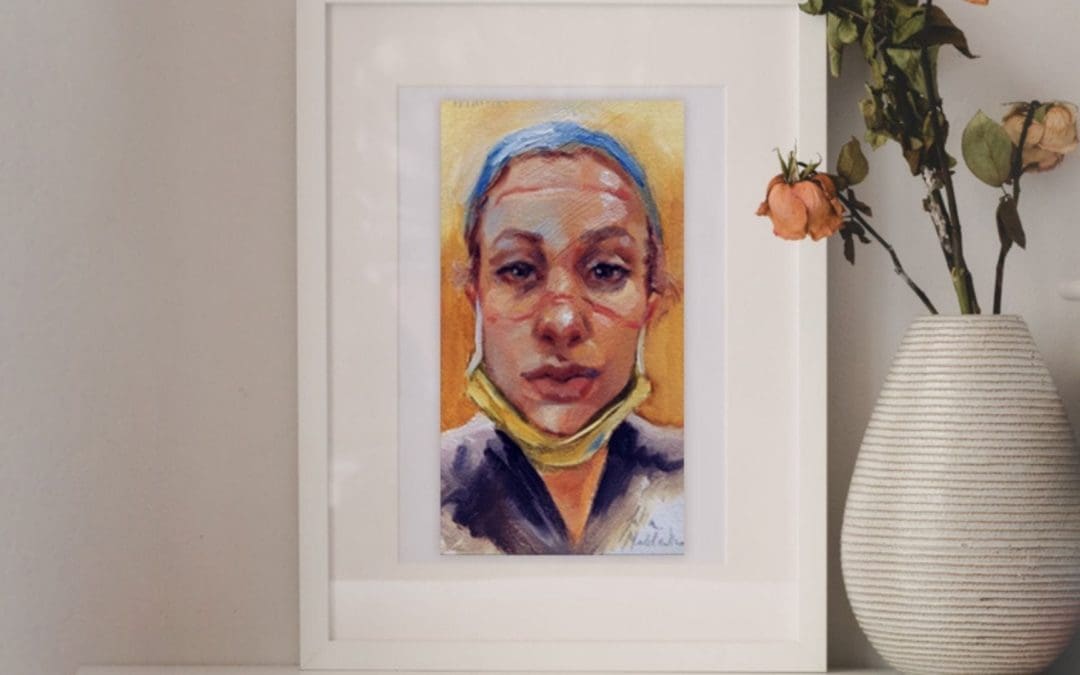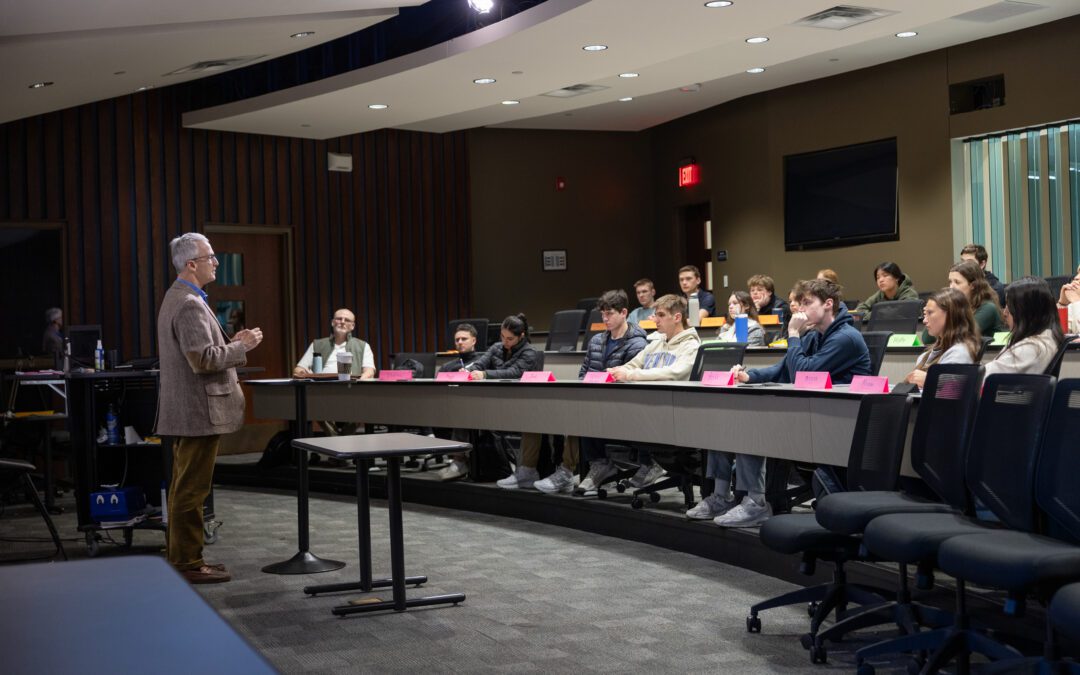Throughout the COVID-19 pandemic, the tremendous sacrifice essential workers have made all across the country cannot be denied – especially those in the healthcare industry. Oklahoma Wesleyan University alumni are doing their part, too.
Amanda Berg, a 2014 OKWU nursing graduate, is an ICU nurse at Weill Cornell Medical Center in New York City. She’s been in the thick of the pandemic since the very beginning, and even in the darkest weeks she’s had only one goal in mind: to be the hands and feet of Jesus to those in her care.
“[Nursing] is such a hands and heart experience,” she said. “How can you be any closer to Jesus than washing people’s feet?”
Berg grew up in a difficult family situation, but gave her life to the Lord as a young adult, shortly before she made her college decision. When she was touring OKWU’s campus, she had the opportunity to meet some of the professors in the School of Ministry, including Dr. Mike Fullingim. They took extra time to meet with Berg, meeting her questions with grace and genuine care.
“I think at first, I really struggled. You’re watching these people suffer on a horrific level. But the thing that gets you through that is seeking Jesus’ presence always. Seeing him present with our patients and with us, as a protector and a defender.”
“The questions they were able to answer just really spoke to me,” Berg said. After that, the decision was an easy one, and she committed to OKWU as a Nursing student with a minor in Global Studies, this the product of a passion for ministering to those in other cultural contexts.
After a few years working at local Oklahoma hospitals, Berg made the move to New York City, partly out of a desire to combine those two aspects of nursing and global ministry.
“One of my callings in life is to work with people of different cultures and to minister to them,” Berg said. “And where else can you find every single culture in the world but New York?”
Just like the rest of the country, Berg obviously had no idea that the COVID-19 pandemic was coming, and she describes the first days of the situation as frightening and confusing.
“As we walked into this, we really had no preparation whatsoever, and for a while we had no protective equipment,” she said. “Still, [the managers] have handled this with incredible grace, considering none of us had enough information beforehand. There weren’t enough testing kits. All of us were exposed…before we even knew what it was.”
As the pandemic grew worse, Berg recalls the moment when the medical staff began to see the true severity of what was happening. “We started realizing, wow, this is really going to hit us… all of us went through a period of shock, then acceptance,” she said. “This could really affect us.”
While always taking an optimistic tone, Berg is quick to point out how dangerous the virus can be, noting that patients of all ages and health status have come to her unit needing treatment. She also stresses that the symptoms can come on fast, sometimes in a matter of hours. The patients who get tested are often frightened, and the process of treatment can be traumatic.
“You don’t realize how stressful it is [not being able to breathe freely], until you can’t,” she said.
But even in the darkest times, and even as New York continues to be one of the hardest hit areas in the country, Berg strives to see the positives and find hope. “The situation changes every day,” she said. “And we’re able to see a lot of patients get better, especially younger patients.”
She’s very conscious of the responsibility that she has a nurse to provide the very best in care for her patients – not just physically, but relationally, also.
“As nurses, a lot of us are trying to step into that gap. We can’t be your family, but we’re going to try to give you the support that you need and the encouragement that you need and the love that you need,” Berg said. “We’re going to make sure you’re okay and that you get better, to the utmost of our ability.”
More than anything, Berg is trying to remain conscious of her faith, seeking trust in the Lord even when the situation seems incomprehensible. “I think at first, I really struggled. You’re watching these people suffer on a horrific level. But the thing that gets you through that is seeking Jesus’ presence, always,” she said. “Seeing him present with our patients and with us, as a protector and a defender.”
As a concept, it’s an easy answer, but it’s one that’s endlessly difficult to put into practice. Still, Amanda Berg, and countless other nurses across the country, are trying.
“Seeing his presence has gotten me through… I don’t know if you can get through it any other way.”
“As nurses, a lot of us are trying to step into that gap. We can’t be your family, but we’re going to try to give you the support that you need and the encouragement that you need and the love that you need. We’re going to make sure you’re okay and that you get better, to the utmost of our ability.”



